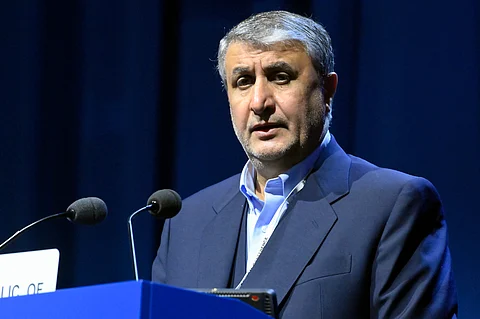

Iran has announced immediate retaliatory measures in response to a resolution passed by the International Atomic Energy Agency (IAEA) declaring Tehran to be in non-compliance with the Nuclear Non-Proliferation Treaty (NPT).
On Thursday, the resolution—introduced by the United States, United Kingdom, Germany, and France—was passed at the IAEA Board of Governors meeting with 19 votes in favor and 11 abstentions. Only Russia, China, and Burkina Faso voted against the measure.
Tehran had previously warned that it would respond decisively should such a resolution be adopted. Following the vote, Iran’s Atomic Energy Organization announced a series of countermeasures. These include a significant increase in enriched uranium production and the opening of a third enrichment facility at a secure, undisclosed location.
Additionally, Iran plans to replace first-generation IR-1 centrifuges with more advanced IR-6 models at its underground Fordow facility. Tehran also indicated that it intends to scale back cooperation with the IAEA and is considering expelling inspectors from the country.
According to Iranian authorities, the installation of the IR-6 centrifuges at the new enrichment site is already underway. They stated that uranium enrichment would commence immediately upon the completion of the setup.
A more dramatic potential step was revealed by the spokesperson for Iran’s Parliament National Security and Foreign Policy Committee, who stated that withdrawal from the NPT is now “on the table.”
Tensions between Tehran and the IAEA appear to have deepened further after Iran’s Fars News Agency published what it claims are classified documents related to Israel’s nuclear program. According to the report, the documents detail extensive communication between IAEA Director General Rafael Grossi and Israeli officials.
Fars News also reported that Iran’s Ministry of Intelligence confirmed that sensitive and confidential communications between Iran and the IAEA had been shared with Israel.
These developments come amid rising tensions in the Middle East. The United States has announced the withdrawal of non-essential embassy staff, along with the families of military personnel, from its missions in Iraq and Kuwait. Additionally, U.S. naval forces stationed in Bahrain have been placed on high alert.
In Israel, Prime Minister Benjamin Netanyahu is set to convene an emergency meeting at 8:00 PM local time at the Kirya, Israel’s underground Defense Ministry command center.
U.S. President Donald Trump, when asked by reporters on Thursday about a possible Israeli strike on Iran stated, "I don't want to say imminent, but it looks like it's something that could very well happen".
IAEA Chief Grossi stated Wednesday that Iran had notified him that any Israeli strike on Iran's Nuclear sites will lead to Iran withdrawing from the NPT and developing nuclear weapons.